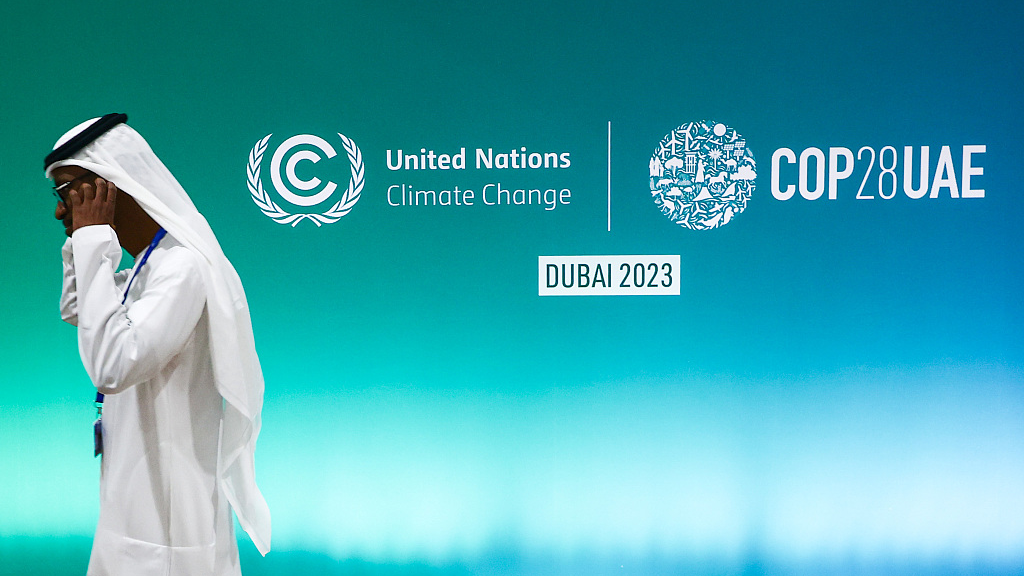The deal to create a "loss and damage" fund to help the world's poorest and most vulnerable countries hit by climate change at the COP28 represents not only a huge victory for global climate justice but also a huge compromise for developing countries, according to Laura Kuhl, assistant professor of Public Policy and Urban Affairs and International Affairs at Northeastern University.
On the first day of the UN Climate Change Conference, also known as COP28, which opened Thursday in Dubai, the United Arab Emirates (UAE), countries reached an agreement on funding the most impacted by climate change and setting the World Bank as a temporary host for the fund.
The deal has been seen as a breakthrough at this year's UN climate talks.
COP28 President Sultan al-Jaber hailed "the first decision to be adopted on Day One of any COP" and said his country, the UAE, would chip in $100 million. Other countries stepped up with big-ticket commitments, including Germany, also at $100 million.
"It was great to see that as one of the first outcomes in the COP. It's very significant if you look back to history and how many decades, not just years, countries of the Global South, small states, small islands, developing economies at large, [were] exposed to the damages and losses because of the climate change. And they were looking for recovery and mitigation funding," UN Climate Change High-Level Champion for Egypt Mahmoud Mohieldin told CGTN on Thursday.
At last year's COP27 in Egypt, countries agreed to establish the "loss and damage" fund but many details were left unresolved, and dozens of contentious meetings were held in the year on who would contribute to it, how large it would be and who would administer it, among other issues.
In an interview after the deal was reached, Kuhl told CGTN that the deal is both a huge victory for global climate justice as the world's largest contributors to greenhouse gas emissions that heat up the Earth are already making pledges to help the least developed countries deal with climate change, but also a huge compromise by developing countries as the World Bank's biggest donors – mostly developed countries – have more say in its decision making than developing countries.
02:14

An editorial published in the journal Nature ahead of the COP28 pointed out that the World Bank, whose president is conventionally appointed by the U.S., had come late to taking climate change seriously under its current president, prompting some climate-vulnerable countries to call for the fund to be associated with the UN on a permanent basis in order to keep it independent.
RR Rashmi, a former climate negotiator with the Indian government, said that the arrangement provides no true independence to the fund and will obstruct direct access of the fund to vulnerable communities.
Kuhl acknowledged that the deal made at this year's climate talks is not ideal but the most expedient as she believes that it's better to have a deal that is not perfect than to have no deal at all.
"This was decided in large part because of the desire to ensure that this fund gets up and running quickly," Kuhl said.
The Guardian reported that the initial loss and damage funding is close to $429 million. Kuhl told CGTN that the amount is far from enough to meet the needs as estimates on the cost of loss and damaged caused by climate change have reached trillions of dollars.
A UN-backed report released earlier this year shows that developing and emerging countries will need $2 trillion per year by 2030 to cope with climate breakdown.
The deal asks developed countries to contribute to the fund but also encourages other countries and private parties to donate, too. It says allocations will prioritize those most vulnerable to climate change, but any climate-affected community or country is eligible.
The AP reported that some developed countries have sought to limit the access to the fund to the most vulnerable, like Afghanistan and Bangladesh in Asia, several African countries as well as island nations such as Kiribati, Samoa and Barbados.
Dan Jorgensen, Denmark's minister for Global Climate Policy, said that those who have the strength and resources to contribute should do so.
(Cover image via CFP)


